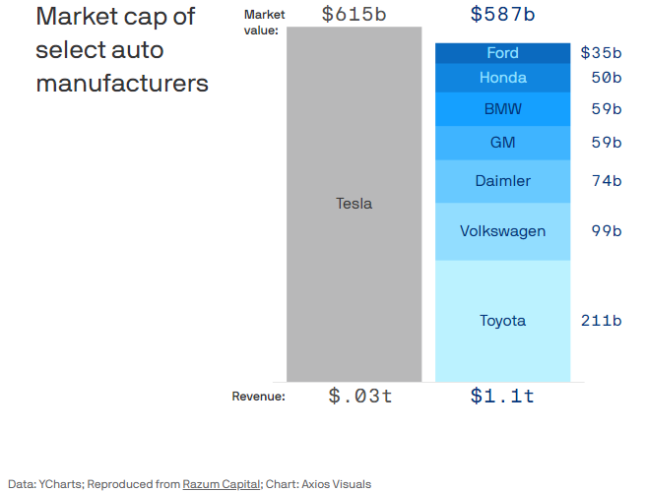Good day, and welcome to that rarest of treats: a Monday hi, tech.!
I was moving house at the weekend and I remain surrounded by boxes, but that won’t stop my meddling.
🐦 True tech-heads will want to check out the special edition review of Koo I sent out on Friday:
Koo is an intriguing Twitter alternative and it certainly senses an opportunity right now.
Next in the series, I’m looking at Hive later this week 🐝
Twitter bans journalists for talking about Elon Musk
Look, William Randolph Hearst didn’t buy the New York Journal back in 1895 so they could make fun of him. Any mogul that gets into this game does it for control over medium and therefore, message.
It is a slippery slope, too. Just yesterday, Elon Musk banned the Y Combinator co-founder Paul Graham from Twitter for tweeting about Mastodon. Graham was a Musk ally and just recently, he defended Musk’s actions since taking over Twitter.
Graham was disappointed that Twitter decided to ban links to rival social networks, although he needn’t have been disappointed for long. Last night, Twitter announced that actually, they probably won’t keep the ban in place.
Then, Musk put up a poll asking if he should stay as Twitter CEO. The people say no (58%).
I’m as bored as you are of this buffoon. However, it did get me thinking of something I discussed as soon as the takeover was announced.
The ‘Halo Effect’ on Tesla
When people started sharing that, “Tesla is worth more than the whole auto industry combined” chart, I gently asked some naïve questions.
For instance: “How?”, I asked.
“I can see that they are doing something different and the share price is about future revenues and etc. They are building their own ecosysyem of software and stations, growing internationally, building batteries.
But still: How can they be “worth” more than every other car company combined?”
The responses to these questions were always dismissive, always from the same types of men, never with any logical connection between current/projected revenues and the share price.
These dudes were engaging in post-hoc rationalisation. They had decided to like Tesla and they wanted evidence to support the position they had chosen. The obscene market cap was ample proof.
I’m about to do the same thing right now, right on your screen, from another perspective.
From the outset, it stunned me that Elon Musk was willing to expose his flaws to the world by buying Twitter.
To be held aloft as a generational genius, one must retain an air of mystery. Take it from me.
The Twitter takeover has been bad for his reputation and therefore, bad for Tesla’s market value:
That decline is not exclusively down to his maniacal recent manoeuvres, but nor was the preceding, rapid increase down purely to the company’s fundamentals.
The “halo effect” of the Twitter takeover is already damaging Tesla. I do wonder if this is what drove Musk to put out that poll about his own position. He has tried to get out of this before, as you know. More likely, he somehow thought the people would vote ‘yes’.
People really do want to be taken in by the mythos of the all-seeing guru.
The funny thing with Musk was, he could have kept the halo in place for a little longer. But he couldn’t help himself.
Apple Commits to Encrypting iCloud, Drops Phone-Scanning Plans
Apple didn’t want to do this, so it’s a win for privacy campaigners.
How Spotify Plans to Monetize its Open Source Developer Project
This is fascinating and I must admit, I wasn’t aware so many companies were already using Spotify’s development tools.
Netflix lets advertisers take their money back after missing viewership targets
Unlike with TV spots, where broadcasters make up the difference by handing out freebies in future, Netflix is paying advertisers back in cold cash.
“They can’t deliver. They don’t have enough inventory to deliver. So they’re literally giving the money back,” said one of the agency executives.
And it’s $55 per thousand impressions 😬
Digital advertising’s role in driving long-term brand growth
This is a Meta-commissioned study and you can see what they’re trying to do.
I don’t disagree with the general thrust of the paper. Yes, you should think about the long-term impact of advertising as well as the immediate effect. It’s hard to refute that one.
The problem is that they spent years convincing businesses that Meta’s ad platforms delivered short-term growth, and that this is what they should want. Now that they are struggling to gather the data they need for targeting, they are keen to change the discussion.
Google is playing the same game. It is promoting some woolly notion of the “messy middle” in purchase journeys, only because it has been backed into a corner. Ten years ago, they were pushing the idea that advertising was finally, fully transparent. Today, it’s “messy”. One gets the feeling that’s not the message they prefer to push.
Meanwhile, this article by Amazon Ads’ global head of measurement picks up the baton from Google and runs with the “advertising must be measurable and actionable” slogans. With access to the purchase data, Amazon is naturally advantaged here.
How The Wall Street Journal hopes to reach young news consumers on TikTok
The WSJ is on TikTok! This is a revealing look at what they’re up to and why they’ve finally taken the plunge.
One for the road
a16z has released its 2023 tech trends predictions and it’s pretty comprehensive.
See you for the Hive special later this week 🐝🐝









